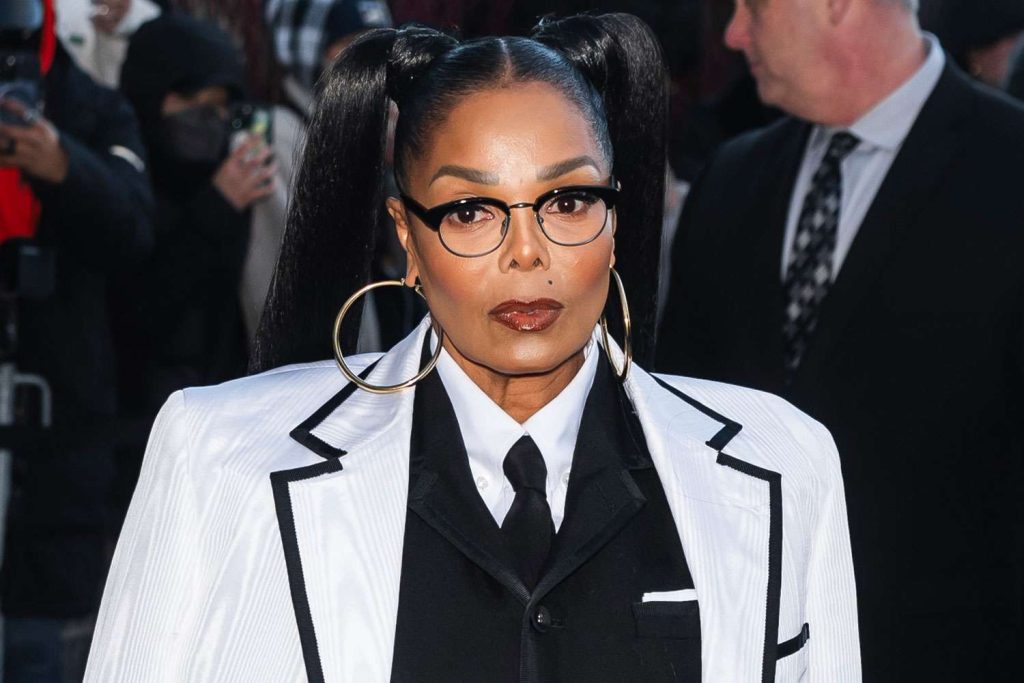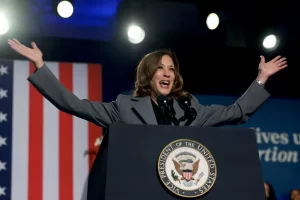Controversy Surrounds Janet Jackson’s Unwarranted Apology
3 min read

Janet Jackson is at the center of a media storm following an unauthorized apology regarding her comments on Vice President Kamala Harris’s racial identity. Representatives for Jackson confirmed that the singer never sanctioned the statement attributed to her, which mischaracterized Harris as “not Black.”
The controversy began during an interview with The Guardian, where Jackson stated, “She’s not Black. That’s what I heard. That she’s Indian.” When the interviewer attempted to clarify, explaining that Harris is of both Black and Indian descent, Jackson continued to assert that she had been misinformed, stating, “Her father’s white. That’s what I was told.”
This misinformation prompted backlash, especially considering that Harris openly identifies as both Black and South Asian American. The historical context around her heritage has often been distorted by conspiracy theorists, many of whom are associated with far-right movements. As noted by Reuters, Harris’s father, Donald J. Harris, is a Jamaican economist, emphasizing the importance of accurately understanding her background.
BuzzFeed was the first outlet to report on the unauthorized apology, which was issued by Egyptian filmmaker Mo Elmasri. He falsely claimed to be Jackson’s manager, taking it upon himself to apologize for the singer’s controversial remarks. According to Variety, Elmasri is involved with the upcoming documentary Janet Jackson: Family First but has no official connection to the singer’s management.
In the supposed apology, Elmasri stated, “Janet Jackson would like to clarify her recent comments. She recognizes that her statements regarding Vice President Kamala Harris’ racial identity were based on misinformation.” He went on to claim that Jackson respects Harris’s dual heritage and values the diversity that she embodies. The statement attempted to frame Jackson’s comments within a broader context of promoting unity and understanding.
However, Jackson’s representatives quickly refuted Elmasri’s claims, insisting that he has no authority to speak on her behalf. They emphasized that Jackson is managed by her brother, Randy, and that the family is currently grieving the loss of their brother, Tito, which has understandably taken precedence in their lives.

Elmasri’s involvement in the situation took an even more controversial turn when he asserted in emails to various news outlets that he had been dismissed by the Jackson family following attempts to rehabilitate the singer’s public image. In his messages, he expressed feeling undeserving of such treatment, positioning himself as a scapegoat in the fallout.
The entire incident has sparked discussions about misinformation and accountability, particularly in the realm of celebrity culture. It raises questions about the responsibilities public figures have when discussing sensitive topics like race and identity, as well as the challenges they face in managing their public personas amid widespread scrutiny.
Moreover, Jackson’s attempt to address the fallout from her comments, albeit through an unauthorized channel, underscores the complexities of celebrity communication in the digital age. The rapid spread of misinformation can lead to significant consequences, not just for the individual involved but also for the communities represented.
As the situation continues to unfold, it serves as a reminder of the delicate balance celebrities must maintain between their personal beliefs and public perception. The Jackson family’s current focus on mourning may also highlight the human side of celebrity life, where personal tragedies can influence public actions and statements.
In light of these events, it remains crucial for public figures to seek clarity and accuracy in their statements, particularly when discussing issues of identity that resonate deeply with many individuals. Jackson’s experience illustrates the broader societal need for thoughtful discourse around race and heritage, emphasizing the importance of empathy and understanding in all conversations.